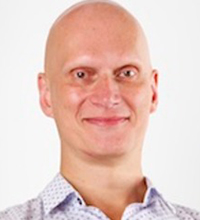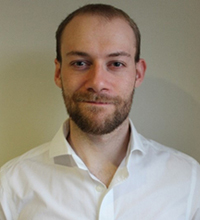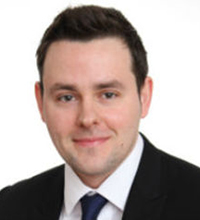How good do you think you are at recognising faces? What about voices? Some people are great at it, while others struggle. Researchers have found a large variation in people’s abilities to recognise the faces or voices of those completely unknown to them.
These super-recognisers have been successfully deployed in many agencies, including London’s Metropolitan Police Service.
When it comes to face recognition, the ability ranges from those who struggle to recognise the faces of friends and family – a condition known as prosopagnosia or face-blindness – to those who have demonstrated exceptional unfamiliar face recognition skills, called super-recognisers. These super-recognisers have been successfully deployed in many agencies, including London’s Metropolitan Police Service.
Similar findings have also been discovered for voice recognition. The condition phonagnosia describes those who struggle to recognise the voices of their friends and family. But whether or not someone can possess exceptionally good voice recognition ability remained uncovered, until now.
In a new study, we and our colleagues tested whether super-face-recognisers could transfer their abilities across to recognising voices, to explore the possibility of a super-voice-recogniser.
Face and voice abilities
Typically, to assess the ability levels of super-recognisers, researchers have often used two tests.
First, the Cambridge face-memory test measures the ability to learn and remember a face. Then the Glasgow face-matching test is used to measure the ability to say whether two faces belong to the same person or two different people.
However, being good at recognising a face doesn’t necessarily mean someone is also good at face matching. Research has shown even super-recognisers can be very good at face memory, but just as good as typical ability participants on face matching or vice versa.
Voice tests have also been designed, not to measure super-recognition skills, but rather to measure the general ability to remember a voice, and to decide whether two voices belong to the same person or two different people. But the extent to which super-recognisers can perform well on voice tests was not yet examined.
Our study
In our recent study, we tested four groups of participants, based on face-memory and face-matching abilities. The participants completed a test of voice memory, a test of voice matching and a test for identifying celebrity voices. The study had a number of findings.
First, we found voice recognition ability varies substantially beyond the definitions found in current literature, which describes people falling into two categories, either ‘typical’ or phonagnosic. We found people can perform very well at voice recognition, beyond the typical range abilities.
This is particularly relevant when voice clips are the only available evidence, such as in cases of phone surveillance, kidnapping, fraud, blackmail and counter-terrorism operations.
Second, we found those who possessed exceptional face-memory skills, face-matching skills, or both, outperformed those with typical ability skills at voice memory and voice matching.
Some participants managed to achieve consistently high scores across multiple tests. This hints at the possibility of a super-voice-recogniser. However further research is needed to properly substantiate this possibility.
Partly this is because the voice tests used were never originally designed to distinguish between the exceptional and the very good, so perhaps are unable to fully explore superior voice processing. As such, new voice tests specifically designed to focus on the upper end of the voice-recognition ability spectrum are required.
Our research provides tentative support to the idea that there may be some link between different mechanisms in the brain. These could be cross-modality (voices and faces) and cross-task (memory and perception) mechanisms that, working together, drive this kind of superior ability to recognise voices and faces.
It may be the case that these individuals can be useful in similar job positions that super-face-recognisers have also been employed in – such as police and security forces. This is particularly relevant when voice clips are the only available evidence, such as in cases of phone surveillance, kidnapping, fraud, blackmail and counter-terrorism operations.
Our work is the first to explore the potential abilities of super-voice-recognisers and ask whether those that possess exceptional face memory abilities, face-matching abilities or both can transfer their skills across to voice tests.
It also provides the first piece of work to suggest individuals with excellent voice-recognition abilities may be able to enhance policing and security operations. Screening for those with such an ability might be a useful tool during recruitment stages of these types of professions.
This article is republished from The Conversation under a Creative Commons license. Read the original article here.
About the authors
 Dr Josh Davis is a Professor in Applied Psychology in the School of Human Sciences at the University of Greenwich, and leads the University’s Face and Voice Recognition Lab. Josh joined the university in 2008 and is module leader for Criminal Investigation Psychology and Investigative Forensic Psychology, Programme Leader for the MSc Psychology (Conversion) and supervises PhD, MSc and BSc research projects. His primary research interests are in cognitive and investigative forensic psychology, in particular face, voice and person recognition and applied legal implications.
Dr Josh Davis is a Professor in Applied Psychology in the School of Human Sciences at the University of Greenwich, and leads the University’s Face and Voice Recognition Lab. Josh joined the university in 2008 and is module leader for Criminal Investigation Psychology and Investigative Forensic Psychology, Programme Leader for the MSc Psychology (Conversion) and supervises PhD, MSc and BSc research projects. His primary research interests are in cognitive and investigative forensic psychology, in particular face, voice and person recognition and applied legal implications.
 Ryan Jenkins is a PhD student at the University of Greenwich, London. His research primarily explores human face and voice recognition abilities. His current PhD is exploring whether super-face-recognisers are also able to identify voices to the same capacity. He is also exploring whether individuals can generally possess super-voice-recognition abilities.
Ryan Jenkins is a PhD student at the University of Greenwich, London. His research primarily explores human face and voice recognition abilities. His current PhD is exploring whether super-face-recognisers are also able to identify voices to the same capacity. He is also exploring whether individuals can generally possess super-voice-recognition abilities.
 David James Robertson is a Lecturer in Psychology at the University of Strathclyde, who joined the School of Psychological Sciences and Health in 2017. David completed his degree in Psychology at the University of Glasgow in 2009, and gained a PhD from the UCL Institute of Cognitive Neuroscience in 2014. His research focuses on face recognition, individual differences, attention, and distractibility.
David James Robertson is a Lecturer in Psychology at the University of Strathclyde, who joined the School of Psychological Sciences and Health in 2017. David completed his degree in Psychology at the University of Glasgow in 2009, and gained a PhD from the UCL Institute of Cognitive Neuroscience in 2014. His research focuses on face recognition, individual differences, attention, and distractibility.
Picture © Shutterstock/metamorworks


